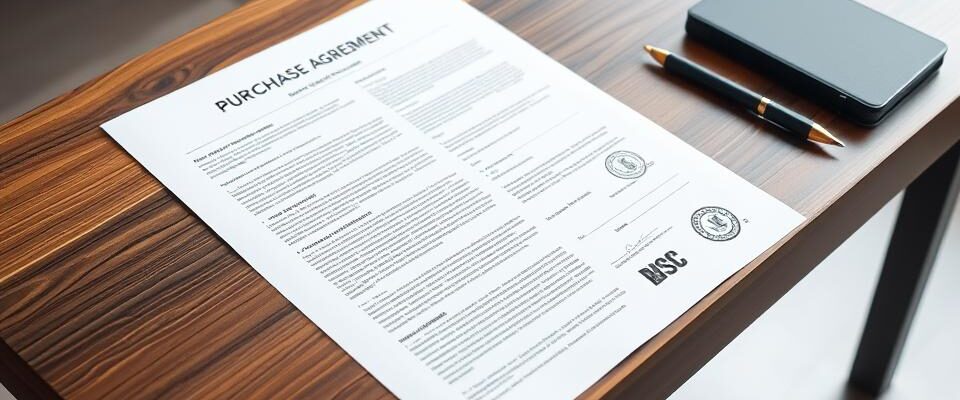Real Estate Purchase Agreement in Costa Rica: Our Expertise
At Gap Real Estate (Grupo Gap LLC SRL), we simplify buying, selling, or investing in Costa Rica‘s property market. With over two decades of coast-to-coast experience, we deliver seamless transactions through expert guidance and clear communication.
Costa Rica‘s real estate law recognizes equal ownership rights for nationals and foreigners, making it an attractive destination for buyers. Our attorney services ensure that the purchase agreement is legally binding and enforceable.
We will guide you through the process, leveraging Costa Rica‘s centralized property recording system for transparency and security. Our expertise in Rica real estate will help you navigate the market with confidence.
Understanding Real Estate Purchase Agreements in Costa Rica
When navigating the complex world of Costa Rican real estate, understanding the intricacies of a purchase agreement is crucial. A real estate purchase agreement is a legally binding contract between the buyer and seller, outlining the terms and conditions of the property sale.
What Is a Real Estate Purchase Agreement?
A real estate purchase agreement in Costa Rica is a detailed document that includes the property description, sale price, payment terms, and closing conditions. It serves as a roadmap for the transaction, ensuring both parties are aware of their obligations.
Key Components of a Valid Agreement
A valid real estate purchase agreement in Costa Rica must include several key components. These include the identification of the parties involved, a detailed property description, the sale price, and the terms of payment. Additionally, the agreement should outline the conditions under which the sale can be completed, such as satisfactory due diligence.
- The agreement must be in writing and signed by both parties.
- It should include the property’s legal description and any relevant identifiers.
- The sale price and payment terms should be clearly stated.
How Costa Rican Agreements Differ from Other Countries
Costa Rican real estate purchase agreements have unique aspects compared to those in other countries. One significant difference is the absence of “seller disclosures,” which are common in countries like the United States. In Costa Rica, the principle of “caveat emptor” (buyer beware) applies, placing the responsibility on the buyer to conduct thorough due diligence.
The role of the National Registry and the notary system in Costa Rica also distinguishes its real estate transactions from those in many other countries. The National Registry provides a transparent record of property ownership, while notaries play a quasi-judicial role in verifying the legality of the transaction.
The Step-by-Step Process of Creating a Purchase Agreement
When buying property in Costa Rica, understanding the step-by-step process of creating a purchase agreement is essential. This process not only protects the interests of both the buyer and the seller but also ensures a smooth transaction.
Initial Offer and Letter of Intent
The journey begins with the buyer making an initial offer on the property, which is often followed by a Letter of Intent (LOI). The LOI outlines the terms of the sale, including the price, payment terms, and any conditions. It’s a non-binding agreement that signifies the buyer’s serious intent to purchase the property.
Drafting the Sales and Purchase Agreement (SPA)
Once the LOI is agreed upon, the next step is drafting the Sales and Purchase Agreement (SPA). This document is a legally binding contract that outlines the terms and conditions of the sale. We work closely with the buyer and seller to ensure that the SPA accurately reflects their agreement and complies with Costa Rican law.
The SPA includes critical details such as the property description, purchase price, payment terms, and closing conditions. It’s crucial that this document is thorough and accurate to avoid any disputes or issues during the transaction.
Setting Up Escrow Services
An essential part of the purchase agreement process is setting up escrow services. Escrow services hold the buyer’s deposit until the conditions of the sale are met, protecting both parties. We advise our clients to use an escrow service because it adds a layer of security to the transaction.
The escrow agreement is a contract that defines the terms under which the buyer deposits money with an independent third party, known as an escrow agent. Typically, the deposit amount is 10% of the purchase price. The escrow agent releases the funds to the seller once the title is properly transferred.
By understanding and following these steps, buyers and sellers can ensure a secure and successful real estate transaction in Costa Rica. We guide our clients through every step, from the initial offer to the final transfer of ownership, ensuring that their interests are protected throughout the process.
Essential Due Diligence Before Signing
When purchasing property in Costa Rica, conducting essential due diligence before signing the agreement is vital. This process ensures that the buyer is fully informed about the property’s status and any potential issues that may arise during or after the transaction.
Property Title Search and Verification
A thorough property title search and verification are critical components of due diligence. This process involves checking the property’s ownership history, ensuring that the seller has the right to sell, and verifying that there are no unexpected liens or encumbrances on the property. In Costa Rica, this step is crucial for avoiding future legal complications.

Legal Requirements and Documentation
Understanding the legal requirements and necessary documentation is another vital aspect of due diligence. This includes reviewing the property’s registration, ensuring compliance with local zoning laws, and verifying that all necessary permits are in place. Our experienced attorneys will guide you through this complex process, ensuring that all legal aspects are properly handled.
Common Issues Discovered During Due Diligence
During the due diligence period, several issues may come to light, including title problems, boundary discrepancies, unauthorized construction, and environmental restrictions. If problems are discovered, our attorneys will assist in making a detailed declaration of negative due diligence, allowing the seller to either rectify the issues or renegotiate the deal. Common issues include encroachments from neighboring properties, easements, zoning violations, and tax liens, all of which can significantly impact the property’s value and future development plans.
By conducting thorough due diligence, buyers can avoid costly surprises and ensure a successful transaction. Our team is dedicated to guiding you through this critical process, providing peace of mind and confidence in your real estate investment in Costa Rica.
Legal Considerations for Foreign Buyers in Costa Rica
When purchasing real estate in Costa Rica, foreign buyers must navigate a unique set of legal considerations. Understanding these legal aspects is crucial for a smooth transaction and to ensure that your investment is secure.
Property Ownership Rights for Non-Residents
Foreign buyers have the same property ownership rights as Costa Rican citizens, with some exceptions near the borders or coastlines, where a special permit may be required. We will guide you through the process, ensuring compliance with all regulations.
Benefits of Creating a Costa Rican Corporation
Creating a Costa Rican corporation can offer several benefits for foreign investors, including liability protection and potential tax advantages. We will outline how incorporating a local entity can facilitate your real estate investment.
Tax Implications and Considerations
Foreign property owners in Costa Rica are subject to various taxes, including property transfer tax, annual property taxes, and income tax on rental income. We will detail these tax implications and discuss potential capital gains tax when selling property.
The total cost of closing a real estate transaction in Costa Rica is approximately 3.65% of the total cost of the transaction, which includes legal fees (around 1.25%) and Registry Expenses (around 2.4%). Understanding these costs is essential for budgeting your property purchase.
We will work with you to ensure compliance with all tax obligations, both in Costa Rica and your home country, to avoid any potential issues.
Closing the Deal: From Agreement to Ownership
The journey to owning your Costa Rican property culminates in the closing process, a critical phase that involves several key steps and stakeholders.
Required Documentation for Closing
To close the deal, several documents are required, including the sales and purchase agreement, property title deed, and identification documents of the parties involved. Ensuring that all documents are in order is crucial for a smooth transaction.
- Sales and Purchase Agreement
- Property Title Deed
- Identification Documents (e.g., passport, driver’s license)
Understanding Closing Costs and Fees
Closing costs in Costa Rica can include transfer taxes, registration fees, and notary fees. Understanding these costs upfront helps buyers budget accurately for their property purchase.
- Transfer Taxes
- Registration Fees
- Notary Fees
The Role of a Notary Public in the Transfer
A Notary Public plays a vital role in the property transfer process in Costa Rica, acting on behalf of the state to ensure the legality of the transaction. They are responsible for drafting the public deed, verifying identities, and recording the transaction.
Having your own attorney/notary handle the closing is advisable to protect your interests and ensure that all necessary documents are properly handled.
Why Choose Gap Real Estate for Your Costa Rica Property Purchase
As a seasoned expert in Costa Rica’s real estate scene, Gap Real Estate offers unparalleled guidance and support. With over 20 years of coast-to-coast experience, we deliver seamless transactions through expert guidance, clear communication, and relentless dedication to your goals.
Our deep local knowledge allows clients to navigate Costa Rica’s real estate market with confidence. We provide end-to-end support services, from handling relocation logistics to managing complex legal details of property transactions.
At Gap Real Estate, we prioritize client success, whether you’re seeking a dream home or a strategic investment. Our results-driven approach is backed by a network of trusted professionals, including attorneys, notaries, and escrow agents, who work together to ensure smooth transactions. We simplify the complex process of international property investment, ensuring clarity, confidence, and a stress-free experience for our clients. Contact us today for personalized assistance with your Costa Rica real estate needs.




